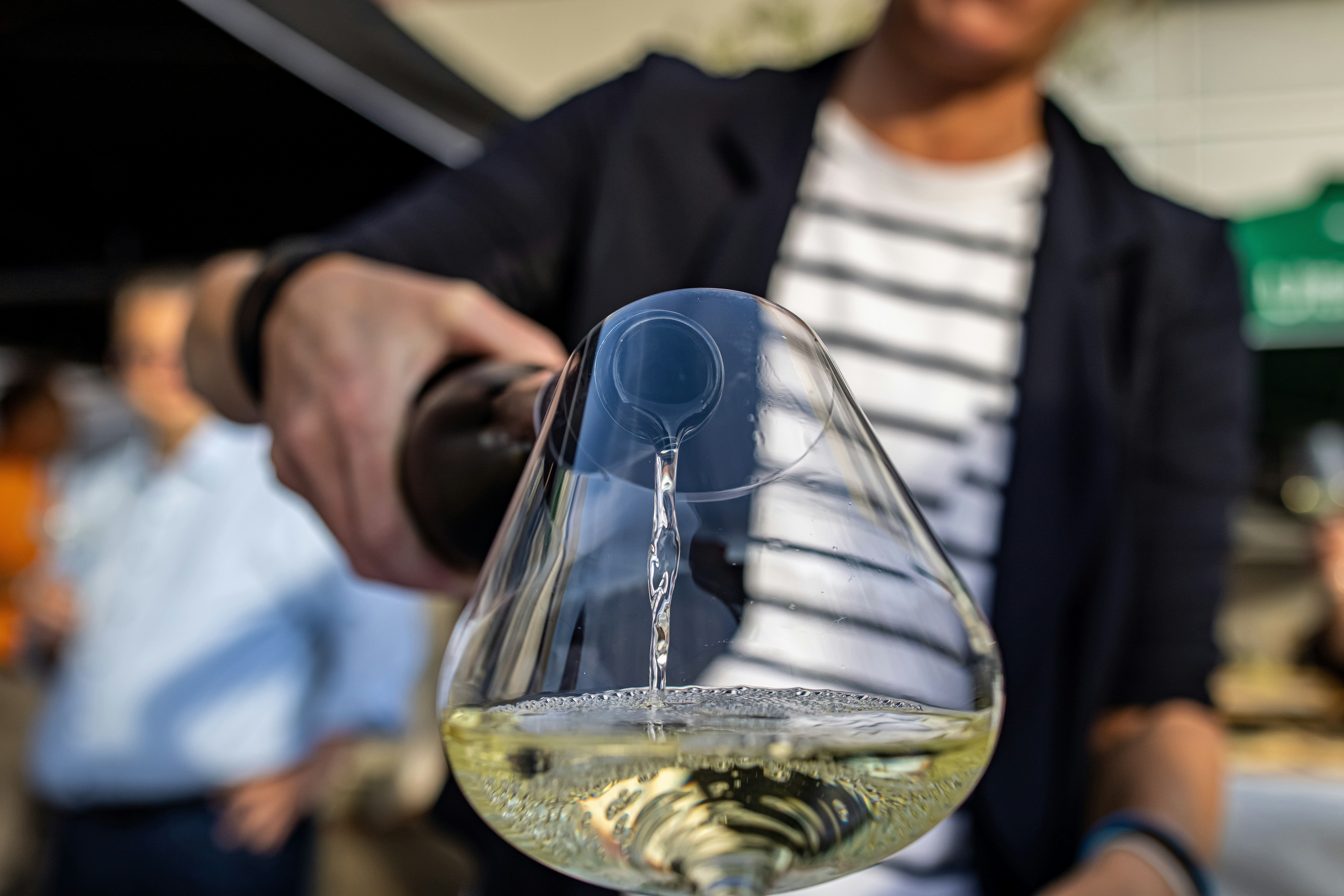From Lounges to Luxury Resorts: How the Travel Industry Is Embracing Sustainability
Discover how airlines, hotels, and lounges are adopting sustainable practices, bridging the gap between travelers’ eco-friendly intentions and actions
March 26, 2025
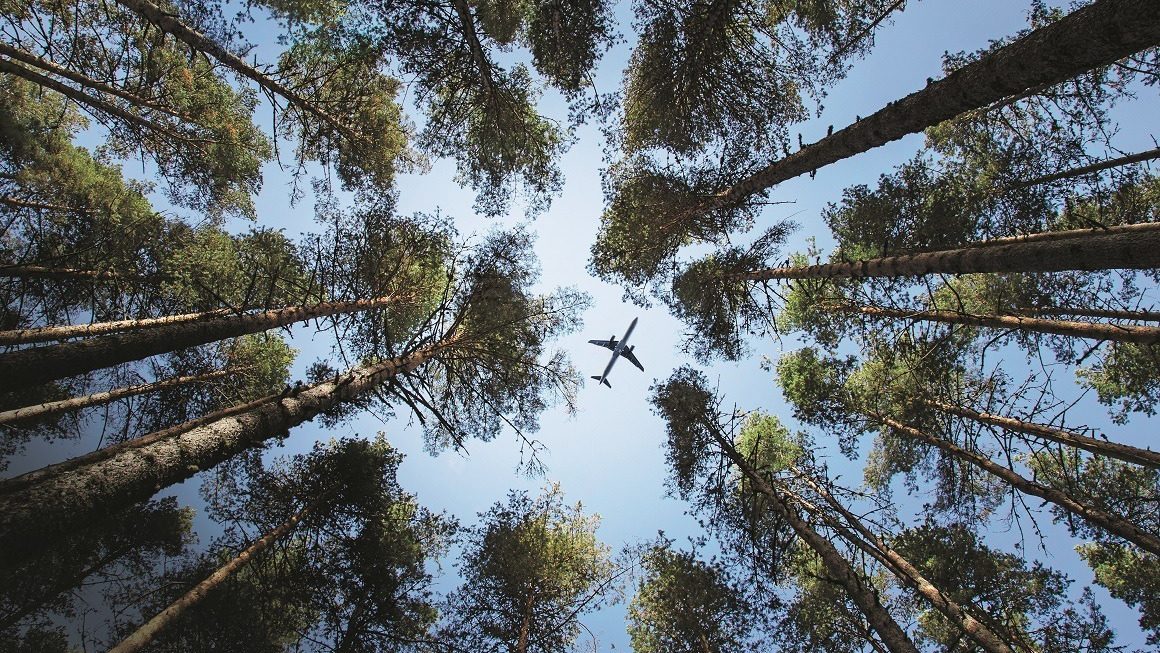
Photo: Courtesy of Priority Pass / Getty Images
Environmental goals are creating real change within the industry, from influencing traveler behaviors to stimulating industry innovation. In the next few years, we can expect to see more sustainable transport solutions, greener accommodation options, and more responsible travel and tourism practices within local communities.
Aviation continues to be a large part of the conversation. The IATA goal of net-zero carbon emissions by 2050 is being standardized across the industry, driving tech advancements in aircraft operations, sustainable fuel alternatives, and greener airports.
In hotels, many initiatives are more easily visible: plastic water bottles have been reduced, and shower amenities come in larger, non-disposable packaging. There’s also a rise in official environmental accreditations to help travelers choose sustainable accommodations and programs to support local communities.
Business travel policies are also being amended in line with environmental targets and greenhouse gas budgets. The climate emergency is raising questions such as: should you fly economy, rather than more carbon-intensive business? Should you consolidate all your appointments into a multi-itinerary affair instead of taking four separate trips? Or should you be flying at all, with rail offering an increasingly viable proposition? Not to mention virtual meetings…
From a rise of plant-based cuisine to coral-planting activities, there’s also been a step change in offerings for travelers looking to make more eco-friendly choices on the road – and on their holiday.
The “say-do” gap
We might want to make green choices – but do we put our money where our mouth is?
- 92% of travelers consider making greener travel decisions, yet only 56.9% of travelers have actually practised it
- 38.8% don’t want to pay more for sustainable travel options
- 32% say there is a lack of credibility around sustainable products and initiatives
- 48.1% are unclear on the concept of a sustainable trip
Takeaway
The “say-do” gap shows that encouraging people to care about the environment is not enough; there must be tangible, affordable, and credible options for individuals to act on their intentions.
Source: Trip.com Group Sustainable Travel Consumer Report 2024
Sustainable airport sanctuaries
Four Priority Pass lounges across the globe demonstrate how to put sustainable practices into action.
The Club SFO, San Francisco International Airport
The Club SFO has achieved a prestigious LEED Gold certification by covering multiple sustainability and efficiency measures. This includes the use of energy-efficient systems and technologies, recycling and composting, the use of biophilia, and water-efficient systems.
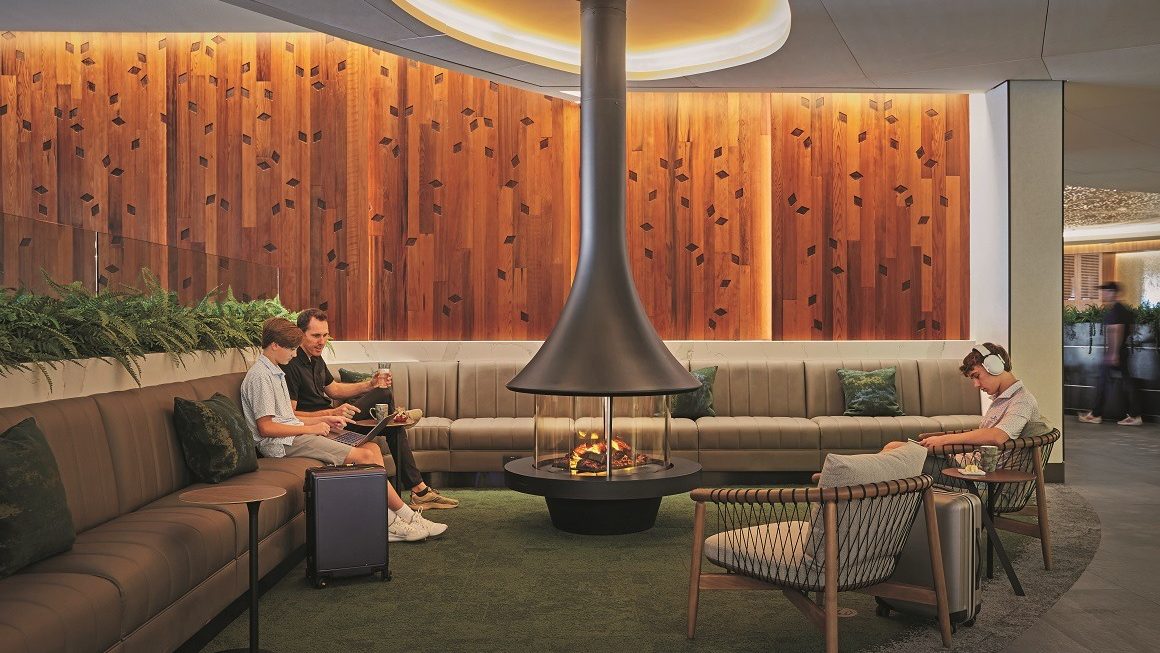
Photo: Courtesy of Priority Pass
Kyra Lounge, Hong Kong International Airport
Innovative solar fins on the windows help to regulate the temperature and reduce air conditioning, while a ‘daylight harvesting’ system adjusts artificial light intensity based on the natural light available. The statement central bar was also made from reclaimed typhoon-damaged wood.
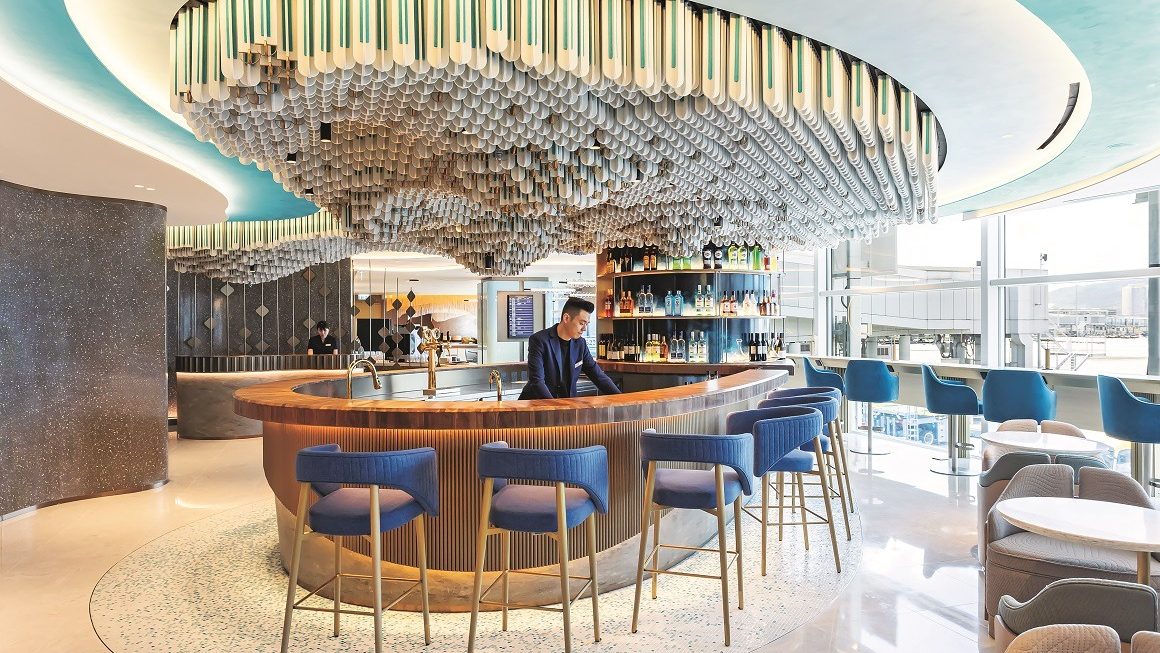
Photo: Courtesy of Priority Pass
AMAE Lounges, Argentina
The B Corp certified lounge operator was named a Pioneer of the Year in the Priority Pass Excellence Awards 2024 for its support of local communities. Lounges work with students from vulnerable communities to provide financial support and recruitment opportunities, as well as showcasing the works of local artisans.
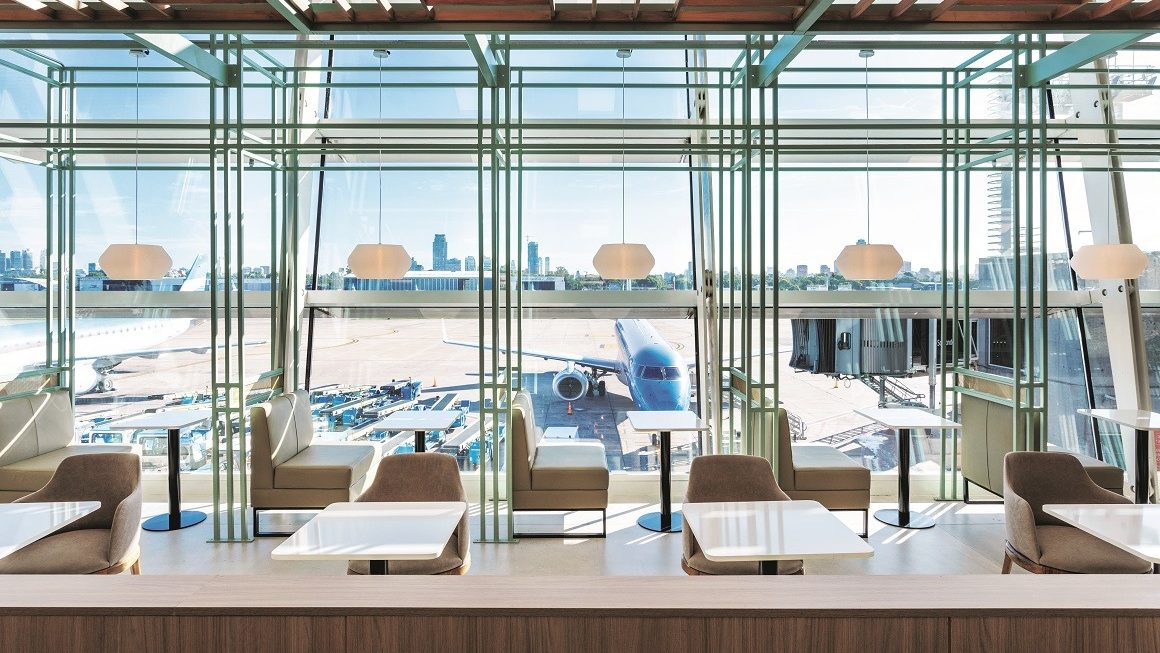
Photo: Courtesy of Priority Pass
Primeclass Lounge, Izmir Adnan Menderes Airport, Turkey
Another Pioneer of the Year winner in 2024, Primeclass Lounge practises micro waste management, while a tap water project – using water clarification systems – has reduced plastic usage. In the first six months of these initiatives, the lounge significantly reduced CO2e emissions.
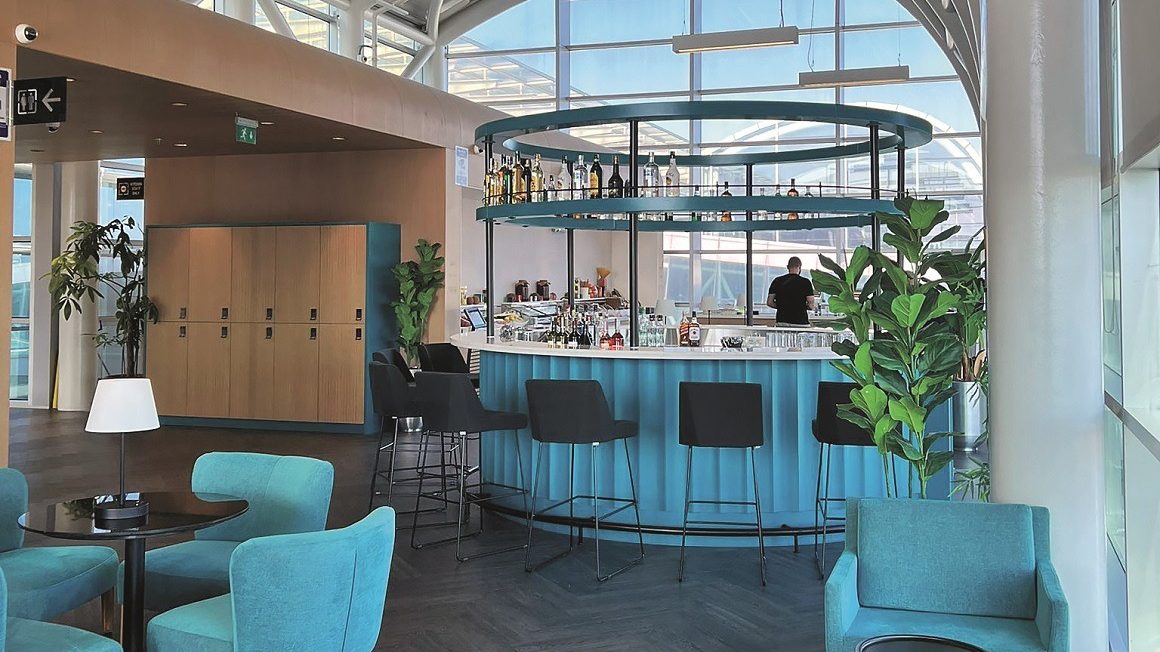
Photo: Courtesy of Priority Pass
Eco luxury highlights
In the Maldives, pioneering eco-resort Soneva Fushi runs on solar energy, treats its own wastewater, and has a zero-waste food policy. It also supports marine conservation with guest activities such as coral restoration.
Perched in the Austrian mountains, Priesteregg harnesses a cocktail of solar power, geothermal energy, biomass, and biogas to provide heat, water, and electricity. Extra heat comes from hot tub wastewater – and ice is stored to cool rooms in the summer.
Conservation efforts such as the ‘Adopt a Tree’ program are deployed at the ENVI Sisini Serengeti, a luxury eco-lodge that opened in Tanzania in July 2024. The resort also offers game drives, hot air balloon rides, wellness treatments, and farm-to-table meals.
In St Lucia, ‘Eat Them to Beat Them’ is a quirky culinary initiative at Anse Chastanet Resort to address a local threat to marine biodiversity: lionfish. Weekly tasting menus showcase the versatility of the fish while educating diners on the local ecosystem. Diners also receive a copy of the Green Fig and Lionfish cookbook by the resort’s consulting chef Allen Susser to encourage sustainable eating practices at home.
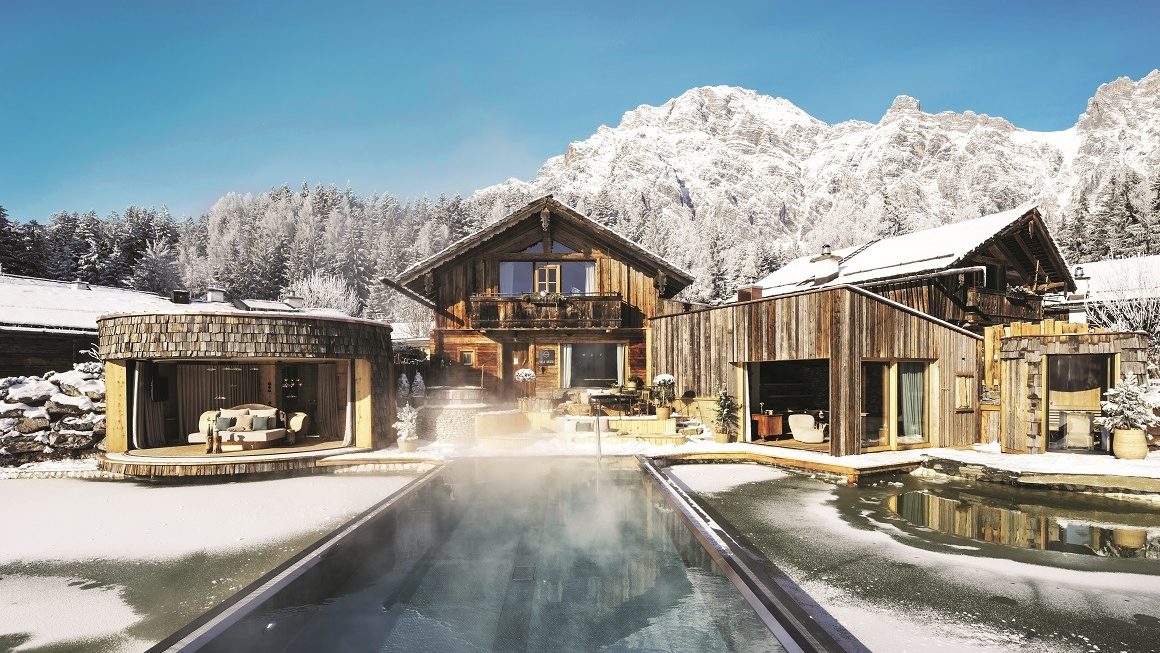
Photo: Courtesy of Priority Pass / guenterstandl.de

SAYNTK (Sustainability acronyms you need to know)
SBTi: Science Based Targets Initiative
A global body helping companies set emissions targets that align with climate science.
ESG: Environmental, Social, and Governance
A company’s commitment to ethical development, from reducing carbon footprint to supporting local communities, and the standards used to transparently measure and disclose its sustainability and societal impact, along with the strength of its governance.
B Corp: Benefit Corporation
A certification for companies that excel in social and environmental performance, accountability, and transparency.
LCA: Life Cycle Assessment
A method to assess the environmental impact of a product or service from production to disposal.
LEED: Leadership in Energy and Environmental Design
A set of rating systems for the design, construction, operation, and maintenance of green buildings, homes, and neighborhoods.



